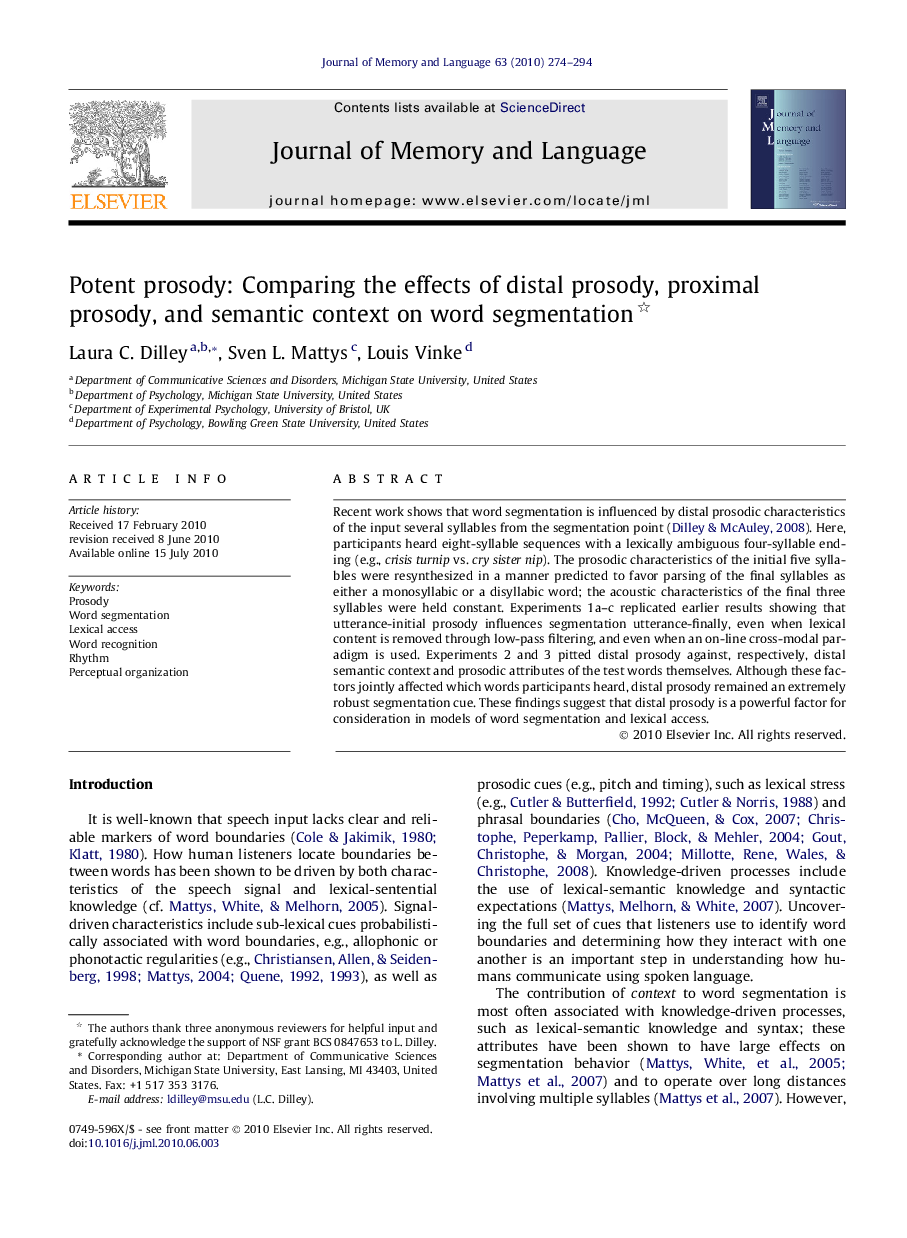| Article ID | Journal | Published Year | Pages | File Type |
|---|---|---|---|---|
| 931956 | Journal of Memory and Language | 2010 | 21 Pages |
Recent work shows that word segmentation is influenced by distal prosodic characteristics of the input several syllables from the segmentation point (Dilley & McAuley, 2008). Here, participants heard eight-syllable sequences with a lexically ambiguous four-syllable ending (e.g., crisis turnip vs. cry sister nip). The prosodic characteristics of the initial five syllables were resynthesized in a manner predicted to favor parsing of the final syllables as either a monosyllabic or a disyllabic word; the acoustic characteristics of the final three syllables were held constant. Experiments 1a–c replicated earlier results showing that utterance-initial prosody influences segmentation utterance-finally, even when lexical content is removed through low-pass filtering, and even when an on-line cross-modal paradigm is used. Experiments 2 and 3 pitted distal prosody against, respectively, distal semantic context and prosodic attributes of the test words themselves. Although these factors jointly affected which words participants heard, distal prosody remained an extremely robust segmentation cue. These findings suggest that distal prosody is a powerful factor for consideration in models of word segmentation and lexical access.
